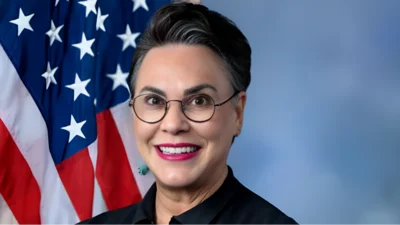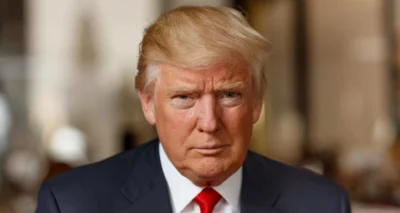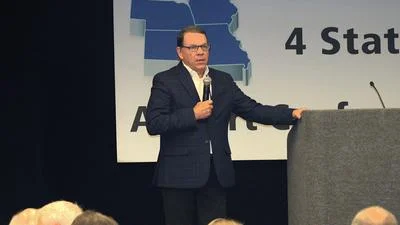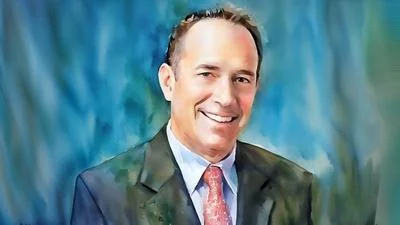More information about the Democratic Republic of the Congo is available on the Democratic Republic of the Congo Page and from other Department of State publications and other sources listed at the end of this fact sheet.
U.S.-DEMOCRATIC REPUBLIC OF THE CONGO RELATIONS
U.S. relations with the Democratic Republic of the Congo (DRC), led by the State Department’s Bureau of African Affairs, are deep and longstanding. U.S. foreign policy is focused on supporting the DRC government in its efforts to combat corruption, uphold democratic processes and effective governance, promote stability and peace within the country and with its neighbors, improve security and justice institutions to strengthen state authority, ensure accountability for human rights abuses and violations, and develop institutions that are accountable and responsive to the basic needs of its people, including combating systemic disease epidemics and attracting American investment. A new chapter in U.S.-DRC bilateral relations was ushered in following the country’s December 2018 elections and the first peaceful transfer of power to President Tshisekedi. This new relationship was marked by the April 2019 announcement of the “Privileged Partnership for Peace and Prosperity" (PP4PP), a joint commitment to work together on areas of mutual concern. That same month, the DRC also became a member of the U.S.-led Global Coalition to Defeat ISIS. Additionally, the United States is the DRC’s largest bilateral donor and the single largest financial contributor to the UN Organization Stabilization Mission in the Democratic Republic of Congo (MONUSCO).
The United States established diplomatic relations with the DRC in 1960, following its independence from Belgium. Following independence, the country saw a mix of unrest, rebellion, secession movements, a long dictatorship, armed conflict, and foreign intervention, including on the DRC’s territory. The DRC’s last protracted conflict, commonly known as Africa’s World War (1998-2003), involved nine African countries and resulted in more than 3 million deaths in the DRC from the fighting and ensuing humanitarian crisis. In 1997, the 32-year regime of Mobutu Sese Seko was overthrown by Laurent Kabila, who was in turn succeeded by his son, Joseph Kabila, who was named head of state in January 2001 following his father’s assassination. The DRC held multiparty elections in 2006 and 2011 in which Kabila was declared the winner. Following a two-year delay of the planned 2016 elections, presidential elections took place on Dec. 30, 2018. On Jan. 10, 2019, Felix Tshisekedi was announced the provisional winner and was subsequently inaugurated as president on Jan. 24, 2019.
Regional stability and security is dependent on durable peace in the DRC, as it is the largest country in sub-Saharan Africa, borders nine other nations, and is home to substantial natural resource wealth, including an estimated $25 trillion in mineral reserves. The UN has maintained a peacekeeping presence in the DRC for 24 of the 59 years since the country’s independence in 1960, MONUSCO. MONUSCO’s mandate was renewed on Dec. 19, 2019, charging the mission with protecting civilians, supporting stabilization efforts, and strengthening state institutions.
U.S. Assistance to the Democratic Republic of the Congo
The DRC’s development and humanitarian needs are vast. US assistance supports a more stable, democratic nation by improving the capacity and governance capabilities of core national-level institutions, creating economic opportunities, responding to urgent humanitarian needs, and addressing the root causes of conflict. The United States has also served as a lead donor to the DRC during the tenth Ebola outbreak, providing more than $569 million in health funds to the DRC and neighboring countries since the outbreak was first announced on Aug. 1, 2018, transitioning to a period of heightened surveillance. The DRC was designated as a U.S. Global Health Security Agenda support country in 2020, providing an opportunity to further build long-term preparedness and capacity amidst the backdrop of Ebola, measles, polio, and other health-related security threats this USAID provides life-saving food, safe drinking water, emergency medical care, critical nutrition services, improved hygiene and sanitation conditions, psychosocial services and other support for vulnerable children, as well as essential household supplies for families who were forced to flee violence and leave everything behind.
The U.S. Department of State’s Bureau for Population, Refugees, and Migration (PRM) supports countrywide protection programs and multi-sector assistance, including gender-based violence prevention and response, targeting refugees and displaced conflict victims in the DRC. The U.S. Department of State’s Office of the Global AIDS Coordinator and Health Diplomacy provides assistance for lifesaving antiretroviral treatment to the DRC’s population living with HIV and programs to reduce transmission of the disease. Approximately $68 million in bilateral PEPFAR funds were implemented in FY 2019.
USAID development assistance integrates programs in education, stabilization, democracy and governance, health, social protection, and economic growth. The United States also works to promote Security Sector Reform (SSR), by focusing on national-level security systems and processes emphasizing professionalization of the armed forces, the military justice system, respect for human rights,, and Sexual and Gender Based Violence (SGBV) prevention, as well as improving the effectiveness, transparency, and accountability of the civilian justice system. The Bureau of International Narcotics and Law Enforcement Affairs supports government and civil society to combat corruption and impunity, increase Congolese law enforcement capacity, strengthen the judicial system, and investigate and prosecute illegal wildlife traffickers.
Bilateral Economic Relations
The Privileged Partnership for Peace and Prosperity aims to develop an enhanced economic relationship with the DRC, with the U.S. as a major investor and trading partner. This includes introducing more U.S. private sector companies and products into the DRC market. Direct bilateral trade with DRC is small, amounting to less than $200 million. Leading U.S. exports to the DRC include pharmaceutical products, poultry, machinery, used clothing, and wheat.
The top U.S. import from the DRC is copper, accounting for over 50% of total exports to the United States. Many DRC exports go to the United States through third countries. Leading DRC exports to the United States include antiques, diamonds, coffee and coffee beans, propane, and tantalum. The two countries have signed a bilateral investment treaty. The United States also has signed a trade and investment framework agreement with the Common Market for Eastern and Southern Africa, of which the DRC is a member.
The Democratic Republic of the Congo’s Membership in International Organizations
The DRC and the United States belong to a number of the same international organizations, including the United Nations, International Monetary Fund, World Bank, and World Trade Organization.
Bilateral Representation
Principal embassy officials are listed in the Department’s Key Officers List.
The Democratic Republic of the Congo maintains an embassy in the United States at 1100 Connecticut Avenue NW, Washington, DC 20036: tel. 202-234-7690.
More information about the Democratic Republic of the Congo is available from the Department of State and other sources, some of which are listed here:
CIA World Factbook Democratic Republic of the Congo Page
U.S. Embassy
USAID Democratic Republic of the Congo Page
History of U.S. Relations With the Democratic Republic of the Congo
Office of the U.S. Trade Representative Country Page
U.S. Census Bureau Foreign Trade Statistics (see “Congo (Kinshasa)")
Export.gov International Offices Page (see “Congo - Kinshasa")
Office of Foreign Assets Control Sanctions Page
Library of Congress Country Studies (see “Zaire (Former)")
Travel Information








